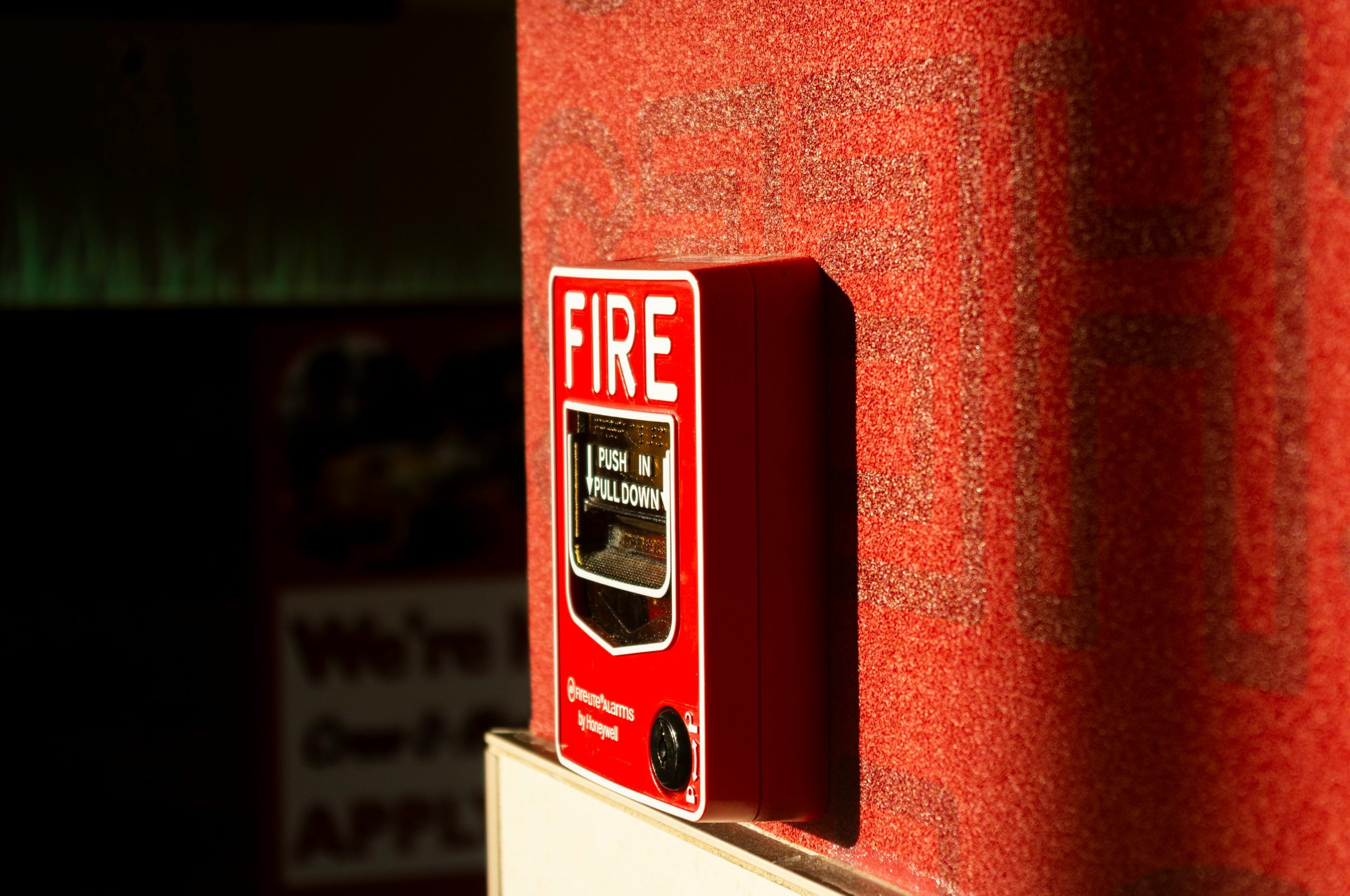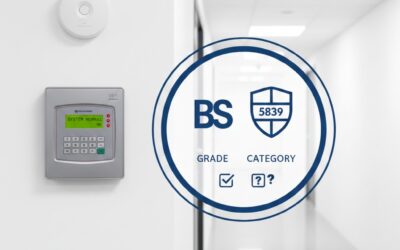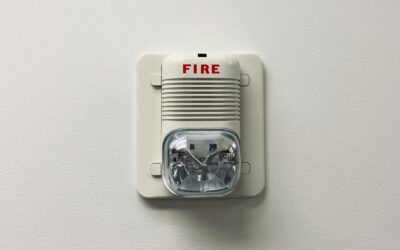Fire alarm systems have different capacities reflecting the requirements of different buildings. A grading system classified into grades that are based on the design, functionality, and application has been developed to assist property owners. This system ensures that the right fire alarm system is installed to meet the particular needs of the property, whether it’s commercial or residential.
Commercial fire alarm grades are applied to more advanced fire alarm systems that have the capabilities to protect larger buildings with higher occupancy, and increased fire risks.
What are the grades of fire alarms?
Fire alarm systems in the UK are divided into grades as categories. These are defined by British Standards, particularly BS 5839.
The grades indicate the type of system and its reliability in dealing with a fire. The categories are based on the specific objectives of the systems, such as protecting the property or its occupants.
- Grade D
Grade D systems are a basic type of fire alarm system. They are designed for smaller, low risk buildings, such as small family homes, or very small commercial units. They will usually feature standalone smoke or heat detectors that are mains-powered with a battery backup. Grade D systems operate independently rather than from a centralised control panel.
- Grade C
This grade of fire alarm systems are suitable for medium sized buildings, or those with a moderate fire risk level. These systems will consist of mains-powered detectors and alarms that are connected to a central control panel.
- Grade B
These systems are designed for larger buildings, those with higher occupancy levels, and increased fire risk. Typically, these might be installed in larger residential premises, or small commercial premises. They include interconnected detectors, manual call points, and a centralised control panel. The control panel enables zonal identification when devices are activated that make it easier to pinpoint the fire’s location.
- Grade A
Grade A systems are usually required in larger, complex buildings, such as large commercial premises or public premises. These will have a fully integrated fire alarm system, including sophisticated features such as multiple detection zones, a central control panel, and fire alarm management.
What grade fire alarm system is commercial?
Commercial fire alarm system grades offer the highest levels of reliability and flexibility and comply with British Standards. Most commercial properties will require grade A systems, with grade B being acceptable for some commercial properties.
Grade A systems will have a number of key features that ensure maximum protection against the risk of fire:
- Control panel
A centralised control panel manages the entire system. This should be capable of identifying the exact location of a fire.
- Automatic detectors
Heat and smoke detectors should be placed in strategic positions ensuring that any fire hazards are promptly detected.
- Manual call points
Call points located in high traffic areas or near exits should allow building occupants to manually activate the alarm in an emergency.
- Alarms
Grade A fire alarm systems should have loud alarms that immediately alert occupants to the danger, allowing for safe and speedy evacuation.
- Power backup
During a fire, the risk of electricity supply failing is increased. This means it’s vital that a fire alarm system features a power backup in the event of an outage.
- Addressable technology
Systems in larger commercial buildings usually need to include addressable capabilities. This enables the specific devices that triggered the alarm to be quickly identified and fire located.
Why are commercial fire alarm system grades required in commercial buildings?
The larger size, complexity, and higher occupancy levels of commercial buildings means that the risks of a fire are greater, and its consequences more severe. Commercial properties will often span multiple floors, may have more complex layouts, and frequently include specialist and storage areas. Higher occupancy rates in commercial buildings mean that when a fire does break out, the risk to human life as well as property is increased.
Commercial fire alarm grades require rapid detection systems, loud reliable alarms, as well as integrated voice communication to guide evacuations and safeguard lives during emergencies.
Different types of commercial buildings will require different levels of protection, with kitchens benefiting from detectors that are resistant to false alarms, and factories requiring heat detectors near flammable materials.
Compliance with the relevant safety legislation also means that business owners and building managers have a duty to ensure that commercial premises are adequately protected.
Professional fire alarm advice, installation and maintenance
At Protive, we provide a comprehensive fire alarm system installation and maintenance service for residential and commercial properties. We can advise about the best choice of system for your property, and then design and install that system to the highest professional standards.
Contact our experienced team for further advice and to receive an accurate quotation.





